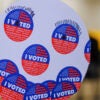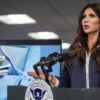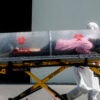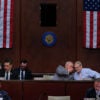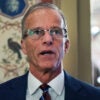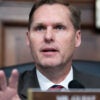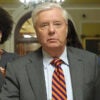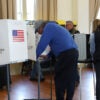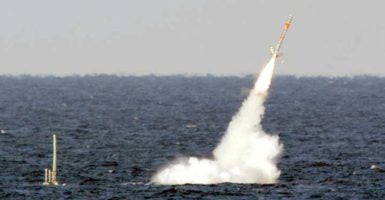The White House has declared that it may be revising United States nuclear policy during President Barack Obama’s final months in office. A “no first use” policy would be a disaster for the U.S. and its allies.
The Obama administration’s consideration of the no first use policy is based on a lack of humility before U.S. historical experience and a failure of imagination with respect to the future international environment.
At its core, a no first use policy means that the United States would not be the first to use nuclear weapons under any circumstance other than to retaliate after a nuclear weapons attack.
Currently, the United States maintains a level of ambiguity when it comes to specifying the circumstance under which nuclear weapons would be used. Such ambiguity is beneficial to U.S. national security and to that of allies because it leaves the adversaries guessing about U.S. strategy
The first striking problem is that non-nuclear weapons, for example, biological and chemical, can cause as many fatalities as nuclear weapons. The United States needs to deter such attacks just as it needs to deter nuclear attacks. Both Russia and China have active biological and chemical weapons programs and chemical weapons were most recently used in the Syrian conflict.
The administration underwent a comprehensive reassessment of U.S. nuclear weapons posture in its 2010 Nuclear Posture Review. The review recommended against adopting the no first use policy.
The Nuclear Posture Review’s conclusion is even more significant considering it was based on very optimistic assumptions about the international environment—for example, that Russia is no longer an adversary and that the potential for conflict with Moscow is low. Since then, Russia has invaded another country, made nuclear threats against the U.S and its allies, and acted against U.S. interests in the Middle East. In short, the international security environment is a lot worse than the Obama administration assessed in 2010.
As defense expert Keith Payne points out, if the U.S. adopts a no first use policy, adversaries might feel safer to conduct devastating biological, chemical, and conventional attacks against the United States and its allies without a fear of the U.S. retaliating with the most threatening response available. As such, a no first use policy would weaken deterrence that has served the U.S. well since the end of World War II.
The second problem with the no first use policy is that about 30 nations around the world, close U.S. allies like Japan or NATO allies, rely on U.S. nuclear weapons for their own security. They rely on the United States to deter their nuclear-armed neighbors.
North Korea habitually threatens South Korea with annihilation. North Korea’s ballistic missiles can reach Japan, another close U.S. ally. Russia is pursuing increasingly aggressive revisionist policies on the European theater. U.S. nuclear weapons have kept nuclear programs of allies at bay—and that is a very good thing as the complexity of the nuclear environment and thus the potential for miscalculation increases the more nuclear-armed countries exist.
Facing dangerous neighbors and lacking U.S. assurances vis-à-vis devastating non-nuclear attacks, these countries would be undoubtedly more inclined to pursue their own nuclear weapons capabilities, complicating or thwarting U.S. nonproliferation efforts.
The third problem is a lack of imagination on the part of the Obama administration. In the past, the U.S. found itself in the circumstance in which a nuclear weapon use was deemed necessary so that a conflict with Japan might end on terms favorable to the U.S. faster than if the United States continued to wage a conventional war. There is no way of telling if future presidents will not find themselves in the middle of a situation in which a nuclear weapons use might save American blood and treasure, however terrible such a situation would be.
The threshold for detonating nuclear weapons is incredibly high—and justly so. After all, they are some of the most devastating weapons mankind has ever invented. But this should not blind us to the fact that we use our nuclear weapons every day—we use them to deter large-scale attacks, conventional and weapons of mass destruction, every day; and have been since the dawn of the nuclear age.
Nuclear ambiguity has served us well, as decades of Democratic and Republican administrations affirmed over and over. Now is not the time to adopt a no first use policy.
